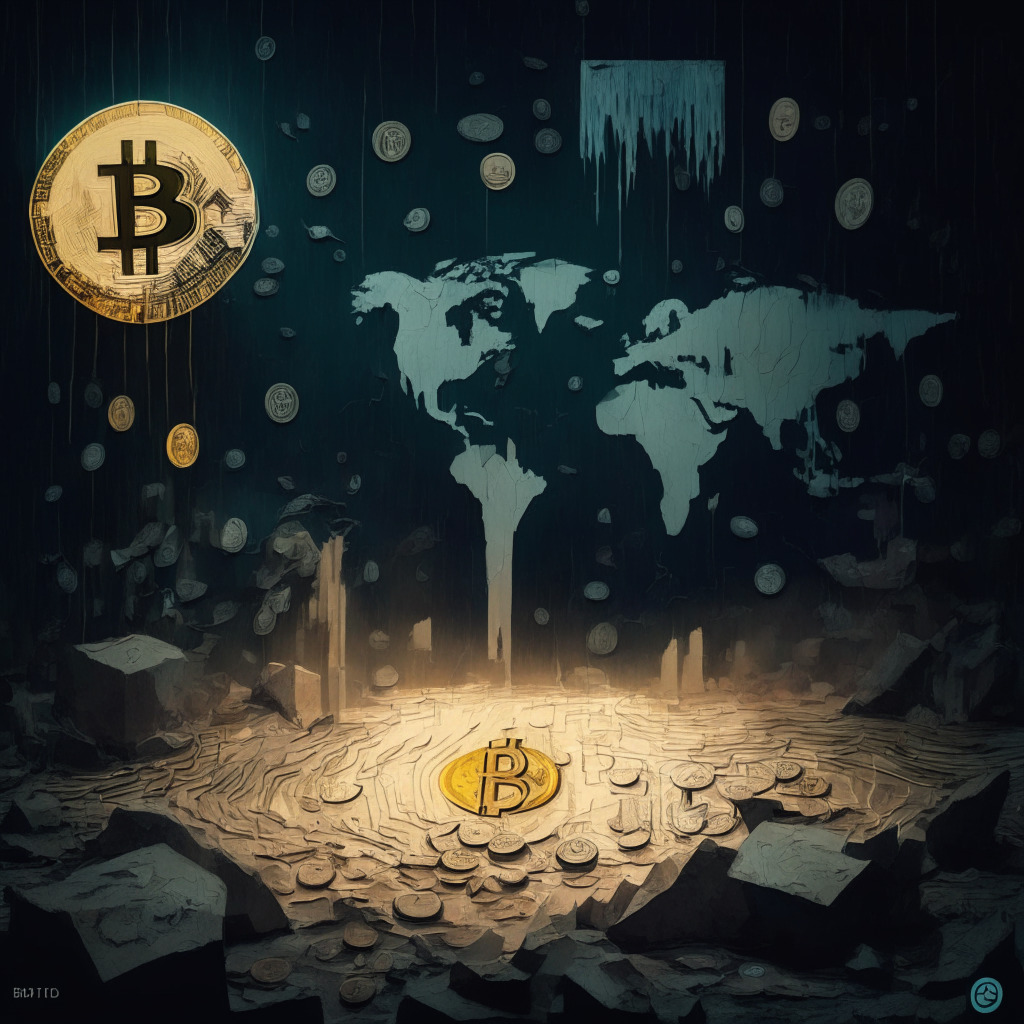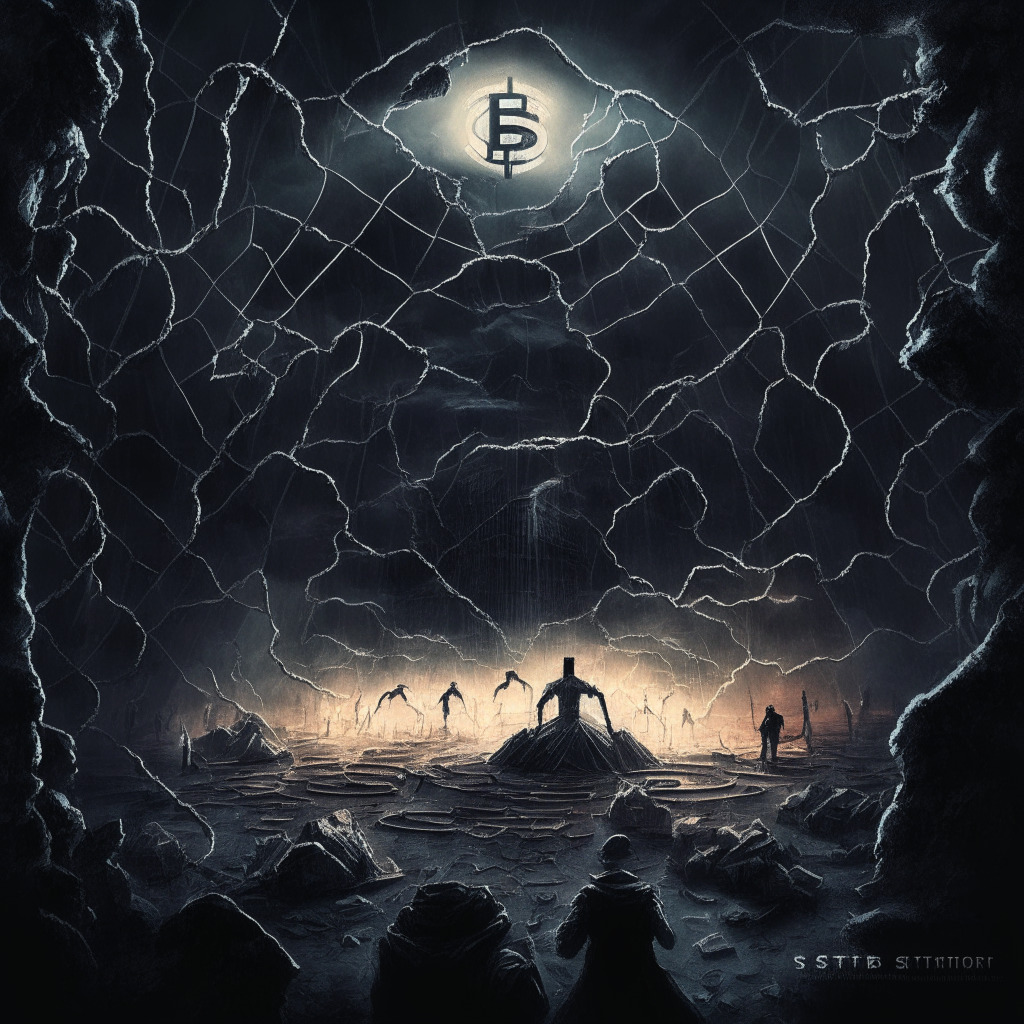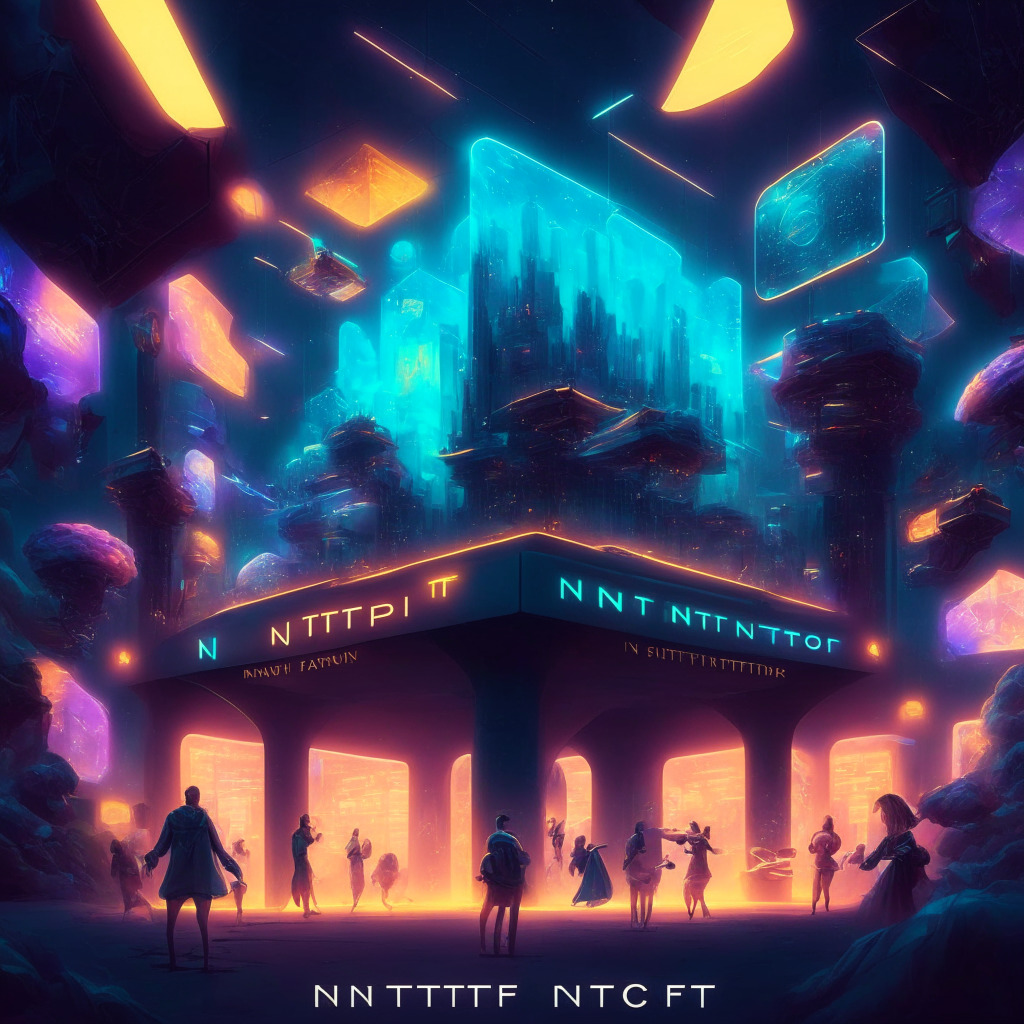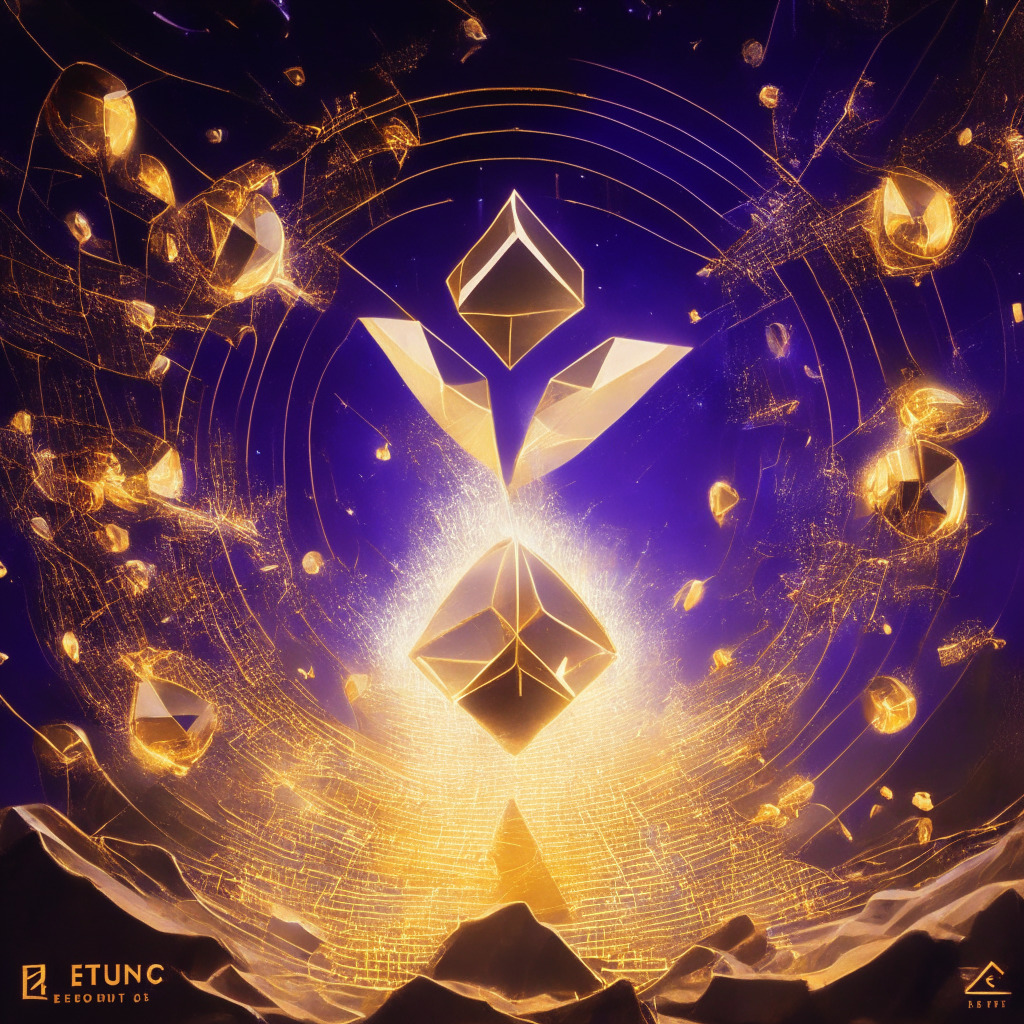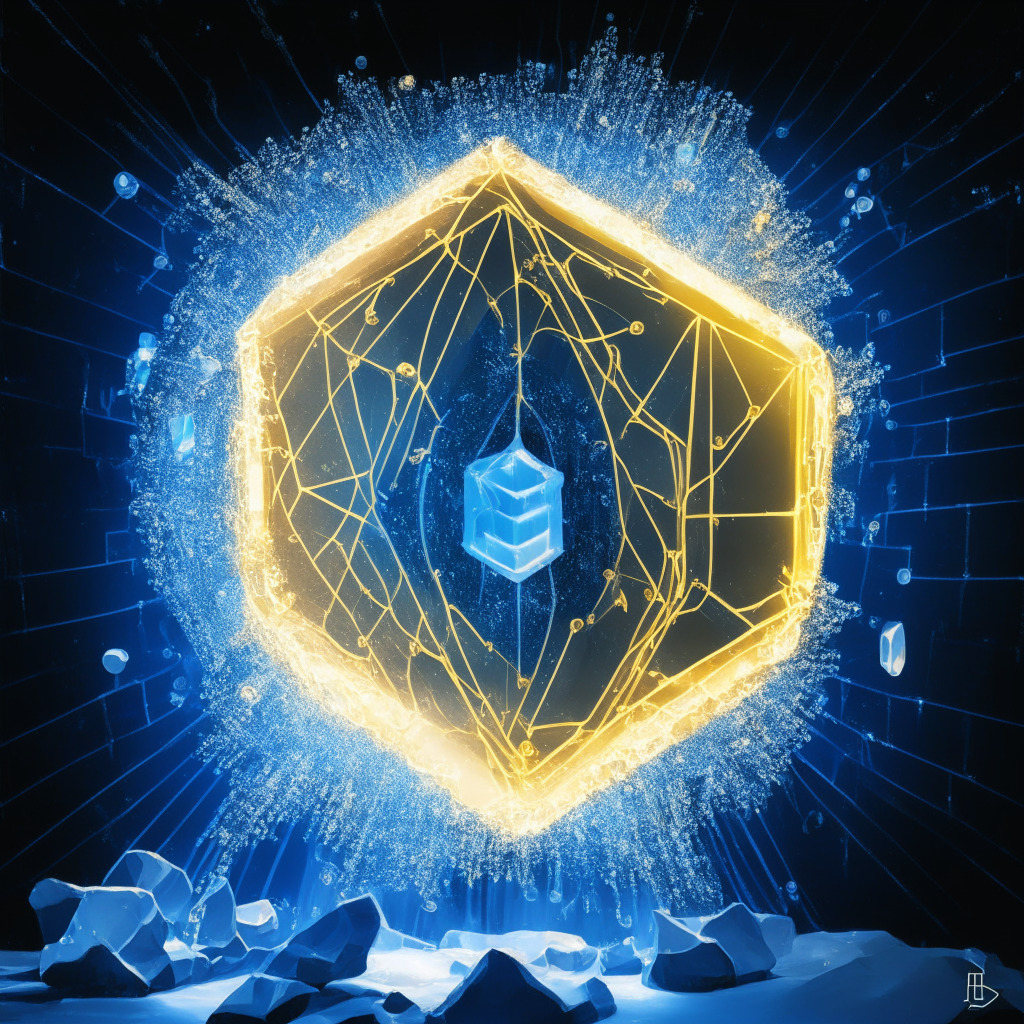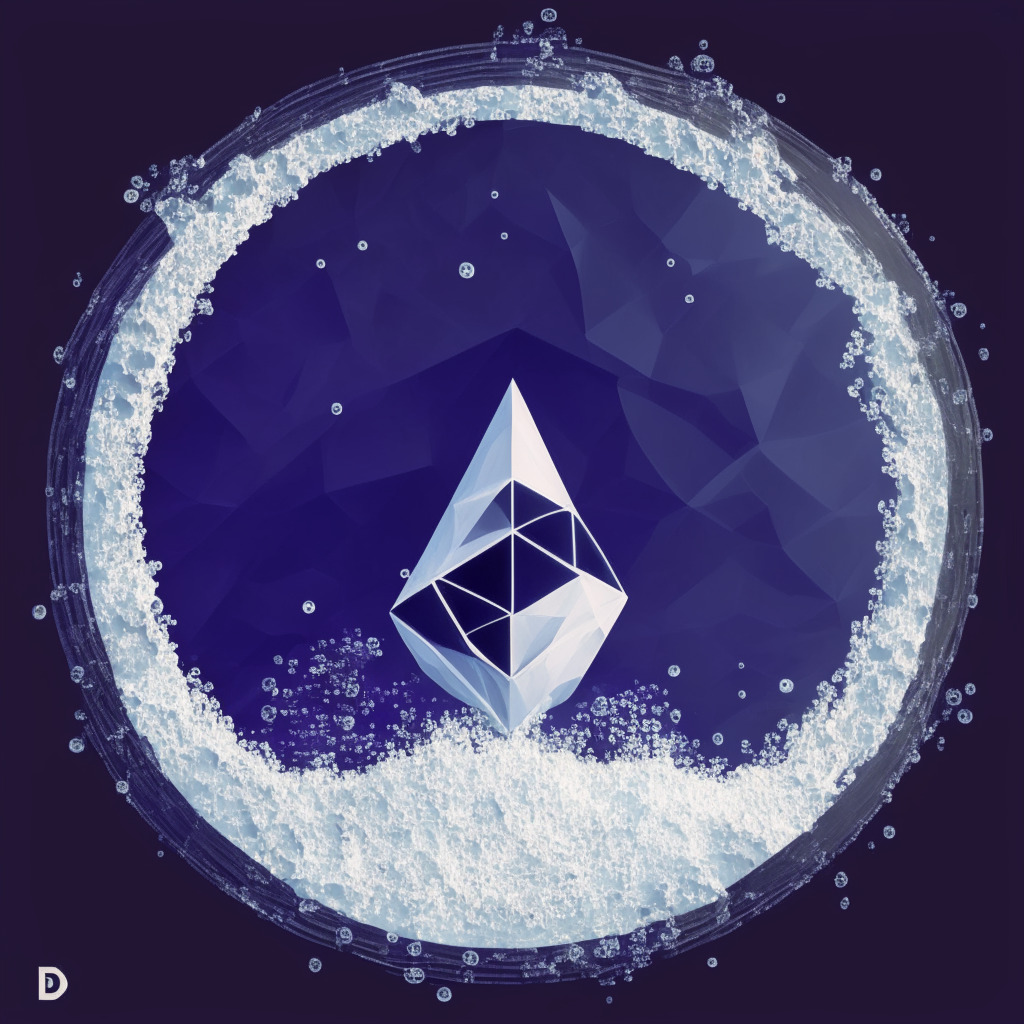Celsius Network’s decision to sell all customers’ altcoins under a new reorganization plan has stirred mixed reactions. With an anticipated massive dump of around $215 million worth of altcoins, concerns arise on market disruptions and potential rug pull situations. The move aims to consolidate resources into Bitcoin and Ethereum for a more stable investment environment.
Search Results for: Poly Network
Polygon 2.0: Unleashing Unlimited Scalability and Bridging Crypto’s Gaps in a Troubled Market
Polygon 2.0, an Ethereum-based Layer-2 scalability solution, aspires to democratize the global economy by creating a user-centric, equitable internet experience. However, uncertainty looms due to the SEC ruling on its native cryptocurrency, MATIC. The new iteration focuses on unification, infinite scalability, and leveraging Zero-Knowledge technology for seamless interaction.
The Arrival of Polygon 2.0: Transforming Internet & Blockchain with ZK Technology
Polygon Labs announces “Polygon 2.0,” a set of upgrades designed to establish the “Value Layer” of the internet, enabling users to create, exchange, and program value online. Powered by Zero-Knowledge (ZK) technology, Polygon 2.0 aims to support limitless chains and seamless cross-chain interactions, potentially transforming internet use and blockchain integration while facing regulatory challenges.
Polygon 2.0: Navigating Global Regulatory Hurdles and Community Control Challenges
Polygon unveils its upcoming project, Polygon 2.0, focusing on development and deployment outside the US amid a tough regulatory environment. With the aim to attract the global community’s attention, Polygon 2.0 will be a network of ZK-powered L2 chains, emphasizing community-driven decisions and facing challenges from US regulatory crackdowns on digital assets.
Solana, Cardano, Polygon Unite Against SEC: Navigating Regulatory Challenges in Crypto
Solana, Cardano, and Polygon unitedly challenge the SEC’s attempt to classify their cryptocurrencies as securities, seeking regulatory clarity to foster innovation and uphold consumer interests. With a combined market cap exceeding $21 billion, they emphasize their tokens’ importance and strive to collaborate with regulators for clear guidelines and a balanced crypto ecosystem.
Cardano, Solana, Polygon vs SEC: Battle for Token Clarity and Market Recovery
The Input-Output Global (IOG), responsible for Cardano development, and foundations behind Solana and Polygon, are disputing recent SEC allegations that their tokens are securities. They aim to clear the tokens and maintain operations despite market fluctuations and uncertainty, urging cautious investor decision-making.
SEC Targets Solana, Polygon, and Cardano: Unraveling the Security Debate and Market Impact
The SEC claims Solana, Polygon, and Cardano are securities, amidst lawsuits against Binance and Coinbase for offering and trading these tokens. The three coins undergo price decline and defend their regulatory statuses, emphasizing collaboration with regulators and exploring potential legal arguments.
Polygon’s SEC Troubles vs Ecoterra’s Green Evolution: A Tale of Two Crypto Projects
Polygon’s native MATIC token experienced a nearly 20% dip following the SEC’s scrutiny. In contrast, eco-friendly project Ecoterra’s presale is approaching the $5 million milestone. Leveraging blockchain technology, Ecoterra aims to promote responsible recycling, carbon offset, and environmental impact transparency through its native $ECOTERRA token.
Kraken Launches NFT Marketplace on Polygon: Boon or Impediment for the NFT Ecosystem?
Kraken is set to launch its NFT Marketplace on the Polygon network, featuring over 250 collections and zero trading fees. The integration aims to ensure ultra-fast and efficient performance in the NFT space, attracting artists and enthusiasts.
Taurus, Polygon, and the Rising Popularity of Asset Tokenization in Europe
Digital asset infrastructure provider Taurus integrates with Polygon blockchain, enabling clients to issue digital securities. With tokenization gaining popularity, Taurus draws interest from major banks like Credit Suisse and Deutsche Bank, blending traditional finance with innovative Web3 solutions.
Tokenization Revolution: Taurus, Polygon & the Future of Mainstream Finance
The partnership between Swiss digital asset infrastructure provider Taurus and Ethereum scaling network Polygon highlights the growing traction of blockchain technology and tokenization within mainstream finance. With numerous financial institutions seeking blockchain-agnostic and token-agnostic infrastructure, the landscape will continue to evolve, attracting players from various sectors and revolutionizing asset management solutions while addressing security, scalability, and compliance concerns.
Deutsche Telekom Embraces Blockchain by Supporting Polygon: Analyzing the Partnership
Deutsche Telekom enters blockchain sector by supporting Polygon infrastructure as a validator, aiming to boost security and decentralization. The partnership is expected to unlock ownership and autonomy, making Web3 technology more accessible and encouraging businesses to embrace blockchain via Polygon.
Deutsche Telekom Dives into Blockchain as Polygon Validator: Boon or Bane?
Deutsche Telekom has entered the blockchain space as a validator on Ethereum scaling solution, Polygon, providing staking services and enhancing the potential of blockchain technology. This move reflects their growing interest in the industry, attracting large-scale investors and driving innovation in decentralized finance.
Ethereum Scaling Meets Telecom Giant: Exploring Polygon and Deutsche Telekom Partnership
Deutsche Telekom partners with Ethereum Layer-2 scaling platform Polygon, joining as one of the 100 validators on its Proof-of-Stake (PoS) network. The collaboration aims to improve the Ethereum ecosystem and strengthen Polygon’s protocol security, governance, and decentralization, attracting attention across multiple industries.
Cabin Network City: Blockchain-Powered Coliving for Digital Nomads and Creators
Cabin, a digital-native coliving city project, introduces a global alliance of self-governing neighborhoods for remote workers and creators through blockchain-powered membership. These affordable, accessible neighborhoods aim to foster human creativity by integrating cabins in close-knit communities, with citizenship access granted via NFTs and governed by the Cabin token.
FastLane Labs’ MEV Solution on Polygon: Catalyst or Controversy?
Multicoin Capital leads a $2.3 million seed funding round for FastLane Labs, a maximal extractable value (MEV) protocol designed for the Polygon network. FastLane Labs offers an innovative auction system that rewards validators without spamming the blockchain, using off-chain and external auctions to minimize redundant transactions.
Aave V2 Polygon Bug: How It Happened and the Road to Recovery
Aave V2 users on the Polygon blockchain have faced difficulties accessing funds due to a faulty upgrade in the ReserveInterestRateStrategy contract, affecting various token holders. Despite challenges, Aave governance proposed a solution and continues to address the issue while maintaining platform stability.
Aave’s Polygon Issue: Funds Stuck, Solution Hinges on Crucial Governance Vote
Aave recently faced an issue with its V2 Polygon platform, preventing users from interacting with Wrapped Ether, Tether, Wrapped Bitcoin, and Wrapped Matic pools, and withdrawing assets. Aave V2’s ReserveInterestRateStrategy upgrade is incompatible with Polygon, impacting assets worth $110 million. Aave assures funds are safe, pending a governance vote to resolve the issue.
Ethereum’s Polygon zkEVM Soars: Analyzing Record Growth and Potential Pitfalls
Ethereum’s high-performance scaling solution, Polygon zkEVM, has witnessed significant success with a new all-time high in transaction volume and a 70% increase in Total Value Locked. Polygon zkEVM offers enhanced privacy, security, low transaction fees, and quick confirmation times, making it highly attractive for financial applications.
Chia Network Enters Web3 Gaming: Facing Giants and Redefining the NFT Landscape
Chia Network launched the Chia Open Digital Economy (CODE) framework, aiming to empower an open metaverse of games and applications with interoperable assets. Chia announced a proof-of-concept trading card game, ChiaTCG, embracing Chia NFTs and turning them into playable cards, showcasing the potential of NFTs within gaming.
Creta’s Web3 Gaming Potential: Polygon Ventures Investment and Challenges Ahead
Creta, a video game development company, recently completed a strategic private investment round, with Polygon Ventures among the key investors. The raised funds aim to advance Creta’s Web3 gaming platform and enhance the gaming experience for fans worldwide. This alliance signifies a potentially significant milestone in the Web3 gaming industry.
DeFi Circuit Breakers: Innovating Security or Adding Complexity to Blockchain Markets?
In response to the surge in DeFi exploitations, a developer proposes a new Ethereum request for comment (ERC) introducing a “DeFi circuit breaker” concept. This proposed measure aims to limit large, suspicious outflows from DeFi protocols, potentially decreasing losses from hacks by 70%. However, the effectiveness of this potential security layer and its implications remain unclear.
Navigating Through the Storm: Cryptocurrency Regulation, Security, and the Future of Blockchain Innovation
South Korea recently approved its first standalone digital-asset bill aiming to protect investors, integrating 19 crypto-related bills and defining digital assets. Thailand’s SEC imposed rules on digital asset service providers, focusing on investor protection, but potentially hampering financial innovation. Blockchain’s security issues remain prominent with instances of stolen NFTs and crypto miners diversifying into high-end chip demand.
Decentralized Finance: Revolutionizing the Future or Breeding Ground for Risks?
Blockchain technology promises to revolutionize finance with decentralization, transparency, and reduced fees. However, concerns about security, regulation, anonymity, environmental impact, and resistance from traditional financial institutions must be addressed for its broader adoption and success.
Crypto Hacks Decrease by 70%: Hackers Return Stolen Funds for White Hat Rewards
Crypto hacker exploits have declined by 70% in Q1 2023, with hackers increasingly returning stolen funds for “white hat” rewards, says a TRM Labs report. Increased regulatory attention, robust KYC/AML policies, and successful enforcement cases are contributing factors to this shift.
Unraveling Circle’s Launch of Native USDC on Ethereum Layer 2: Innovation, Adoption, and Potential Risks
Circle, the blockchain and finance tech firm, has revealed its native USDC tokens on the Ethereum Layer 2 scaling protocol, Polygon. This move aims to allow smoother accessibility of USDC to users and developers. Businesses using USDC on Polygon can create decentralized applications for near-instant, low-cost transactions, revolutionizing payments, remittances and trading. However, adoption faces challenges including complex technology and security concerns.
Blockchain and DeFi Brilliance or Bust: Navigating through Security Concerns and Revolutionary Potential
“Blockchain’s role in decentralized finance (DeFi) experienced a record-breaking incident in September 2023, with over $300 million lost to exploitations. Despite security challenges, DeFi’s potential continues to attract diverse industries, but is also pressured by global regulations and business demands.”
The Future of Gaming: Exploring Blockchain’s Role in Web3 Gaming’s Meteoric Rise and Challenges
“Web3 gaming, a blend of video gaming and blockchain technology, is revolutionizing the gaming scene with aspects like decentralization, true ownership, and community. Innovations such as play-to-earn, NFTs offer a respite from Web2 monopoly. However, the fast-paced progress of Web3 gaming requires keeping up with promising projects in the blockchain-oriented gaming ecosystem.”
Ethereum Staking Surge Sparks Centralization Concerns: A Deeper Dive into JPMorgan’s Analysis
The article reveals Ethereum’s staking growth is leading to increased centralization, with five entities controlling most staking activities. This generates risks like potential single points of failure and lower staking yields. Analysts suggest this centralization might challenge blockchain networks’ decentralization and trustlessness principles.
Zero-Knowledge Tech Fueled W-Pay: A Revolution in Secure Crypto Transactions
“Wirex, a global digital payment platform, introduces W-Pay, an App Chain powered by Zero-Knowledge technology. Aimed at enhancing connections between DApps, non-custodial wallets, and traditional payment systems, it offers swift, secure transactions and total fund control. The Ethereum Virtual Machine compatibility ensures diverse functionalities and promotes crypto ecosystem interoperability.”
Navigating Blockchain and NFTs with a Pumpkin Spice Latte: A Leap into Starbucks’ Odyssey
Starbucks is celebrating the 20th anniversary of its Pumpkin Spice Latte with non-fungible token (NFT) collectibles through its web3 rewards platform, Starbucks Odyssey. These NFTs, named “The PSL Collection: Spiced Stamp,” exhibit a unique merger of blockchain tech and customer loyalty programs, indicating the potential future of blockchain technology in the world of big brands.
Immutable’s Blockchain Gaming Revolution: Promise of Golden Age or Expectations Trap?
Immutable is set to launch its Ethereum-based gaming platform, Immutable zkEVM, aiming to enhance the revenue model, player experience, and developer journey in the gaming world. With over 50 games committed to it, the platform is also planning technical upgrades to ensure better compatibility with Ethereum, aiming to foster a harmonious operational relationship between the two platforms.
